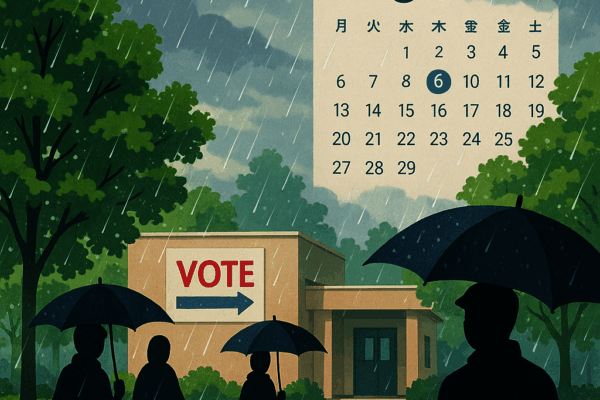The Spark of Controversy Ignites Again: The Past of Lee Jae-myung’s Son Rekindled
In 2024, South Korea’s political scene is buzzing with excitement. At the heart of this upheaval is the son of Lee Jae-myung, the presidential candidate from the Democratic Party. Lee’s son, who was fined 5 million won for habitual gambling and online sexual harassment, has resurfaced in the center of political discourse. But why has this long-forgotten incident erupted anew in the midst of the 2024 political arena?
The past conduct of Lee Jae-myung’s son has transcended simple personal history to become a focal point of political controversy. The revelation that he posted sexually harassing comments on internet communities and received a penalty for repeated gambling offenses has raised serious questions about the candidate’s family ethics.
What brought this issue back into the spotlight is a strategic move within the political circle. The controversy intensified after Lee Jun-seok, a candidate from the Reform Party, directly addressed the matter during a televised debate. This has sparked nationwide attention, shifting the discussion from a mere personal failing to a critical evaluation of the presidential candidate’s qualifications and family ethics.
As the past actions of Lee’s son receive renewed scrutiny, debate rages not only among politicians but also within the general public. While some criticize the politicization of an individual’s private matters, others stress the importance of responsible behavior by public figures and their families.
This incident extends beyond a single person’s missteps. It demands a deep reflection on the ethical standards society expects from politicians and their kin, and how past mistakes should be viewed and judged. The unfolding controversy will no doubt impact the presidential race and potentially lead to significant changes in societal norms. The world watches closely to see how this storm will shape South Korea’s political and social landscape.
A Single Remark in the TV Debate Shakes the Political Landscape Amid Controversy Over Lee Jae-myung’s Son
On May 27, 2025, during a nationally televised debate that captured the attention of the entire nation, a provocative remark by Lee Jun-seok, the Reform New Party’s candidate, sent shockwaves through the political arena. His reference to “misogynistic comments made by Lee Jae-myung’s son” went beyond a mere revelation, signaling the onset of a political storm.
The Spark: Lee Jun-seok’s Unanticipated Attack
In the midst of the debate, Lee Jun-seok pointed out that the son of Lee Jae-myung, the Democratic Party’s presidential candidate, had previously written sexually harassing comments. This statement instantly froze the atmosphere in the debate hall and drew sharply divided responses from various parties.
Fierce Reactions Across the Political Spectrum
- Democratic Party: Decried it as “verbal violence,” demanding Lee Jun-seok’s resignation
- People Power Party: Supported Lee Jun-seok, emphasizing that criticism of sexual misconduct should come first
- Reform New Party: While Lee Jun-seok issued an apology, he stressed the necessity of vetting candidates’ families
The Controversy Over Lee Jae-myung’s Son Emerges as a New Election Wildcard
What began as a debate moment quickly escalated into a pivotal election issue. The scrutiny of Lee Jae-myung’s son’s past actions introduced the moral integrity and fairness of candidates’ families as fresh criteria in voters’ decision-making process.
A Deepening Divide Among Public Opinion
Reactions, especially among voters in their 20s and 30s, have starkly diverged. Some argue that politicians’ family members’ private lives should be subject to examination, while others denounce such moves as political attacks and speak out in opposition.
The ripple effect of Lee Jun-seok’s blunt remark is poised to significantly influence the upcoming election landscape. Political battles over the controversy enveloping Lee Jae-myung’s son are expected to continue, drawing close attention to how voters’ choices will be impacted.
Controversy Surrounding Lee Jae-myung’s Son: Divided Reactions from Both Political Camps and the Public
As the Democratic Party clamors against “verbal violence,” the People Power Party points to a “double standard,” and Lee Jun-seok demands family scrutiny alongside an apology—intense battles flare within each faction, yet public opinion splits sharply. So, who is truly responsible?
The controversy over candidate Lee Jae-myung’s son’s past actions has swiftly escalated beyond politics, captivating public attention. Reactions from political parties and the masses are starkly divided.
The Democratic Party’s Stern Response
The Democratic Party vehemently condemned Lee Jun-seok’s remarks as “verbal violence disguised as debate.” Kim Yong-min, the party’s deputy floor leader for policy, went even further, mentioning the possibility of “expulsion from the National Assembly.” This stance signals their interpretation of the controversy as a political attack they intend to thwart at all costs.
People Power Party Highlights the ‘Double Standard’
In contrast, the People Power Party defended Lee Jun-seok’s comments, arguing that criticism of sexual violence allegations should come first. They pointed to the progressive camp’s previous approaches to similar issues to accuse them of applying a ‘double standard.’ Their position underscores the necessity to scrutinize Lee Jae-myung’s son’s past thoroughly.
Lee Jun-seok’s Dual-Faceted Approach
Lee Jun-seok of the Reform New Party issued an apology for his remarks but simultaneously insisted on the importance of “family verification,” maintaining his stance. This maneuver can be seen as fueling the controversy while strategically evading full political accountability.
A Deeply Polarized Public Reaction
Interestingly, the public’s response to the controversy is as polarized as the political clash itself. Some advocate for strict examination of the candidate’s family history, while others dismiss it as a politically motivated attack. This polarization is especially pronounced among voters in their 20s and 30s.
Questioning Responsibility
Ultimately, who bears responsibility for this turmoil? Some blame Lee Jae-myung’s son for his past actions, while others criticize politicians who exploit the issue for political gain. Moreover, criticism is mounting against media outlets for amplifying and perpetuating the controversy.
The controversy surrounding Lee Jae-myung’s son transcends mere political bickering, raising profound questions about societal ethics and political culture in Korea. It warrants close observation to see how the situation unfolds and what conclusions emerge.
The Election Heats Up: Will the Controversy Surrounding Lee Jae-myung’s Son Change the Game?
Fake news, women’s rights, family scrutiny—some of the most sensitive keywords have erupted all at once ahead of the presidential election. As early voting approaches, where will voters’ sentiments shift?
Family Issues Emerge as a New Wildcard in the Election
The recent spotlight on candidate Lee Jae-myung’s son’s past behaviors is shaking up the presidential race. Revelations about habitual gambling allegations and fines for posts causing sexual embarrassment have thrust the candidate’s family morality into the heart of election debates.
Women’s Rights vs. Political Attacks: Which Way Will Voters Lean?
This controversy has split public opinion between protecting women’s rights and viewing the issue as political assault. Especially among voters in their 20s and 30s, reactions are mixed and ambivalent, making this demographic’s voting decisions a potentially decisive factor in the election outcome.
Controversy Hits Just Before Early Voting: What’s the Impact?
Emerging right before early voting begins, this scandal could cause dramatic shifts in the election dynamics. Voters are likely to weigh not only the candidates’ abilities and policies but also the moral integrity of their families in making their choices.
Political Responses and Future Outlook
Political parties are responding with contrasting stances. Lee Jae-myung’s camp decries the allegations as “political attacks,” while opposition parties insist on “moral verification” and persist with their offensive. How voters perceive these responses will be a crucial variable shaping the election’s trajectory.
The controversy surrounding Lee Jae-myung’s son goes beyond a mere political issue—it prompts a broader reflection on our society’s values and political culture. Now more than ever, voters’ clear-headed judgment is essential.
After the Controversy: The Challenges Left by the Lee Jae-myung Son Incident and the Future Direction of Democracy
Beyond conflict and division, what we need is ‘discussion based on facts’ and ‘responsible politics.’ What lessons has the controversy surrounding Lee Jae-myung’s son, which shook the presidential election scene, left for our political culture?
The Importance of Fact-Checking
The Lee Jae-myung son incident caused confusion amid the blurred line between fake news and truth. It reminded voters how crucial it is to verify the authenticity of information. In future elections, thorough fact-checking of candidates and their families will become even more essential.The Scope and Limits of Verifying Politicians’ Families
This controversy revealed the reality that even the past actions of politicians’ family members are subject to scrutiny. However, it also raises questions about the boundary between personal privacy and public accountability. Our society must consider where to draw this line.Raising the Quality of Political Debates
Statements related to Lee Jae-myung’s son during TV debates call for reflection on the standards of political discourse. Balancing personal attacks with policy discussion and enhancing the dignity of debates are tasks we must address going forward.The Intersection of Women’s Rights and Politics
As the past behavior of Lee Jae-myung’s son escalated into a controversy over misogyny, the relationship between politics and women’s rights was brought back into focus. This suggests that politicians need to adopt a more sensitive and responsible attitude toward gender issues.Enhancing Voter Judgment
Ultimately, it is the voters who must make the final judgment on all controversies. Through the Lee Jae-myung son incident, voters have been tasked with developing the ability to comprehensively evaluate candidates’ and their families’ records, politicians’ responses, and media coverage.
This controversy presents an opportunity for our democracy to mature to the next level. Politicians, the media, and voters alike can contribute to creating a better political culture based on this shared experience. Although the Lee Jae-myung son incident has concluded, the challenges it left behind remain right before us.




